Abstract
The possibility that some of the common childhood infections lead to unrecognized impairments of neurological function was examined in 43 820 Birmingham children whose intelligence was assessed in the 11-plus examination. Mean verbal reasoning scores were lower for children who had had measles or pertussis than for those who had had neither of these diseases. However, since attack rates and measured intelligence are related inversely to social class, the lower scores of children with measles and pertussis may be due to class differences which are not eliminated completely by standardization for maternal age and birth order. Mean scores were a little higher for children who had had rubella than for those who had not, and it is suggested that this difference may be due to more frequent reporting of the disease by the more intelligent mothers.
Full text
PDF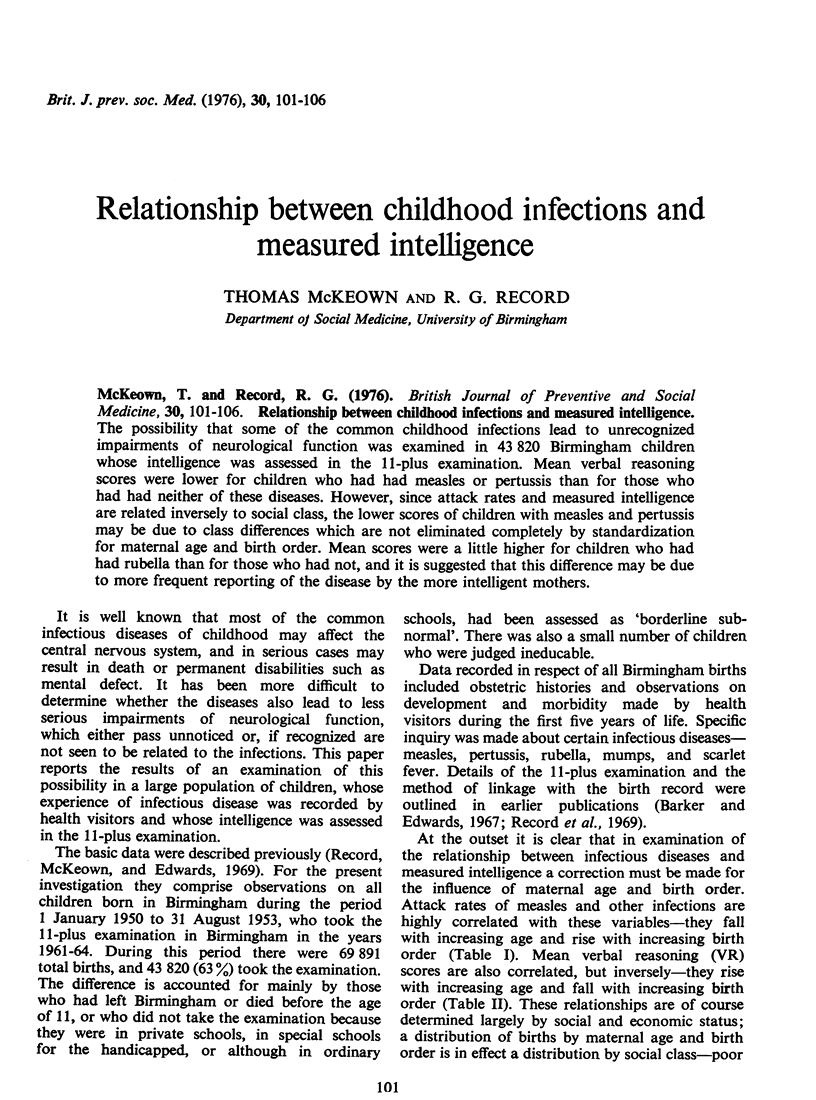
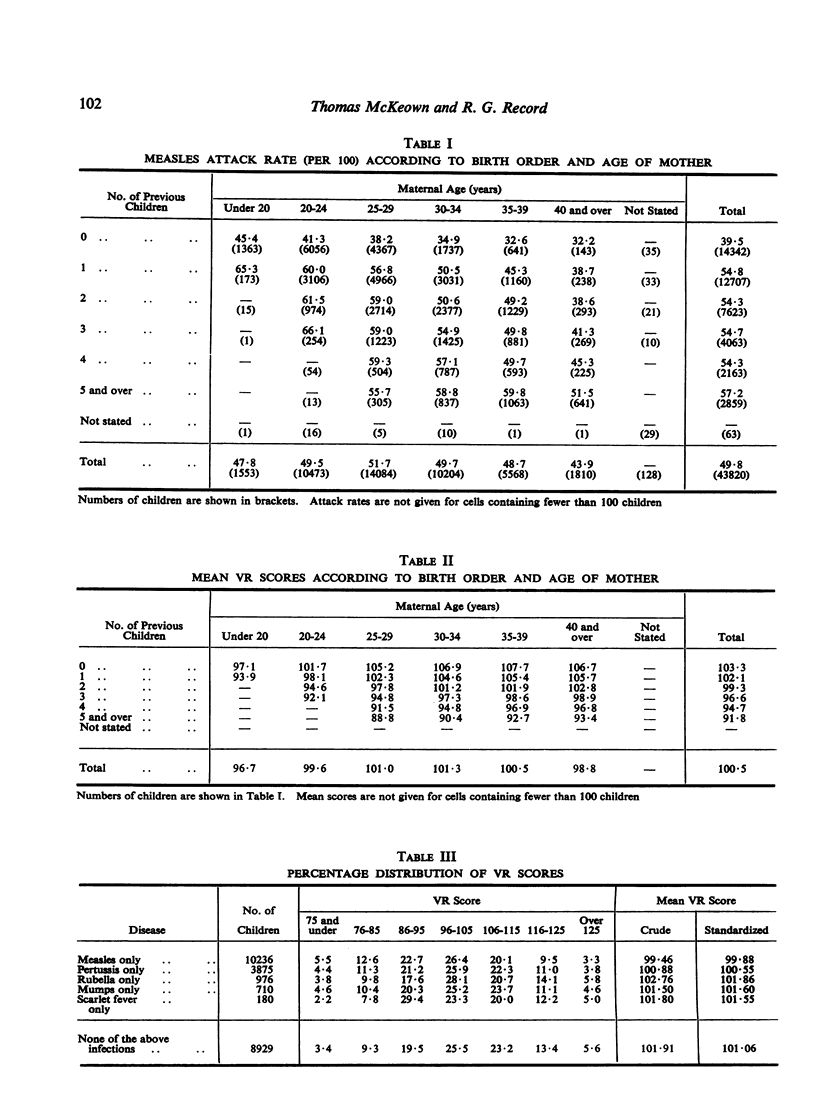
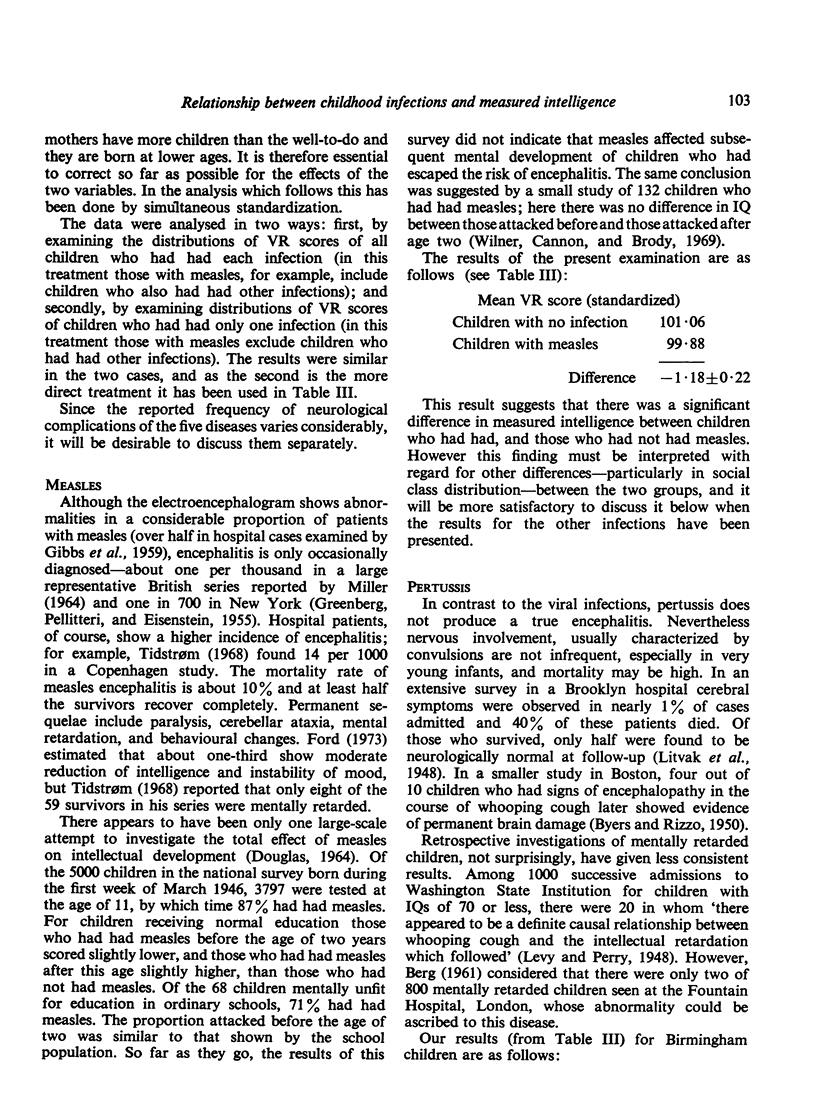
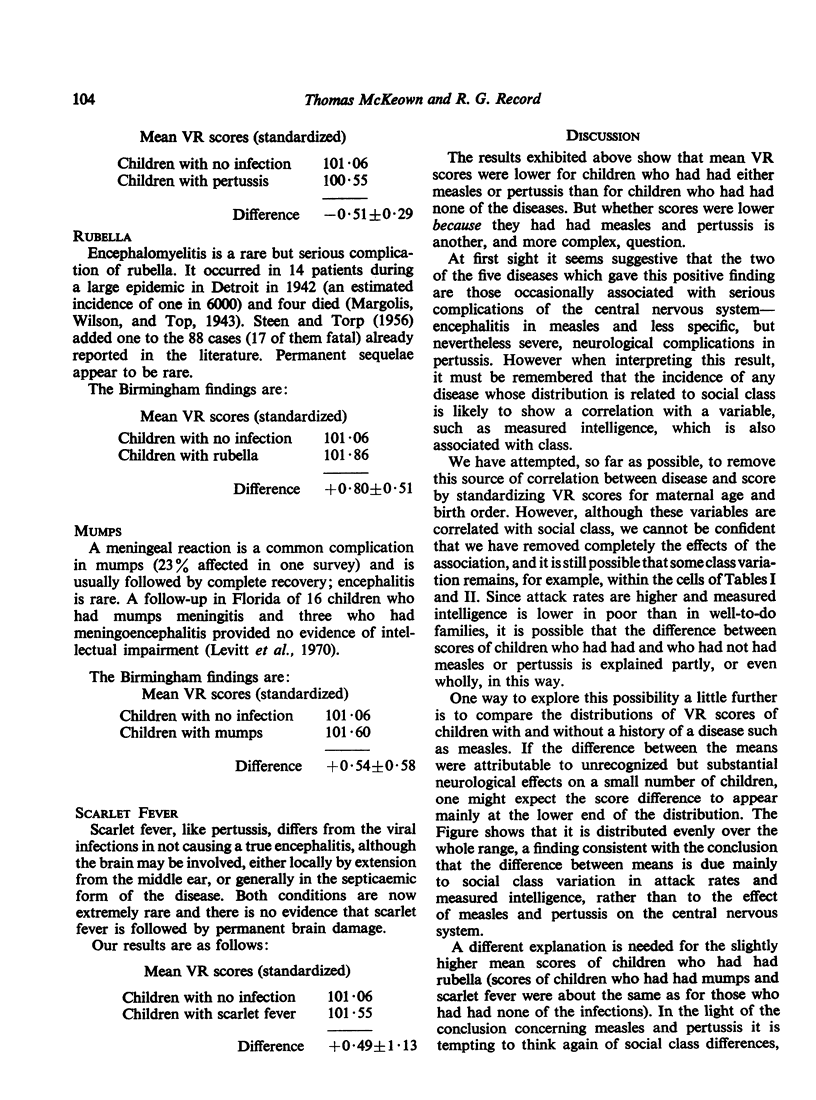
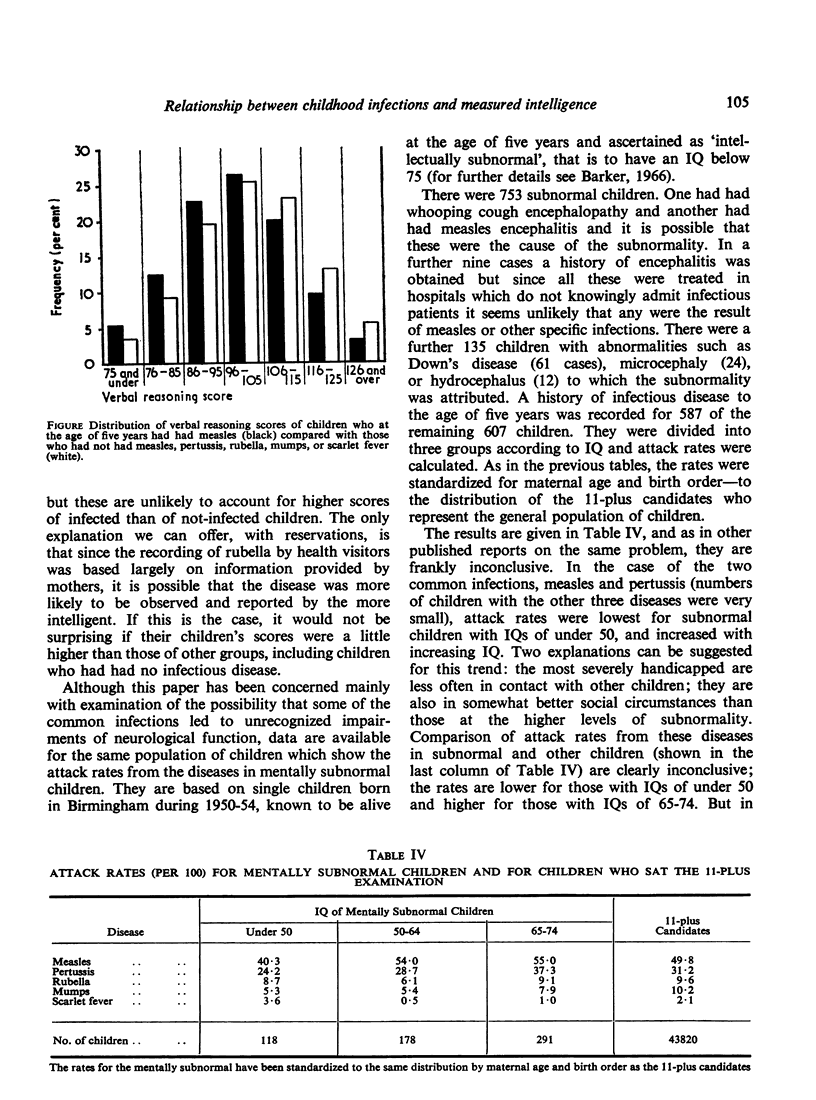
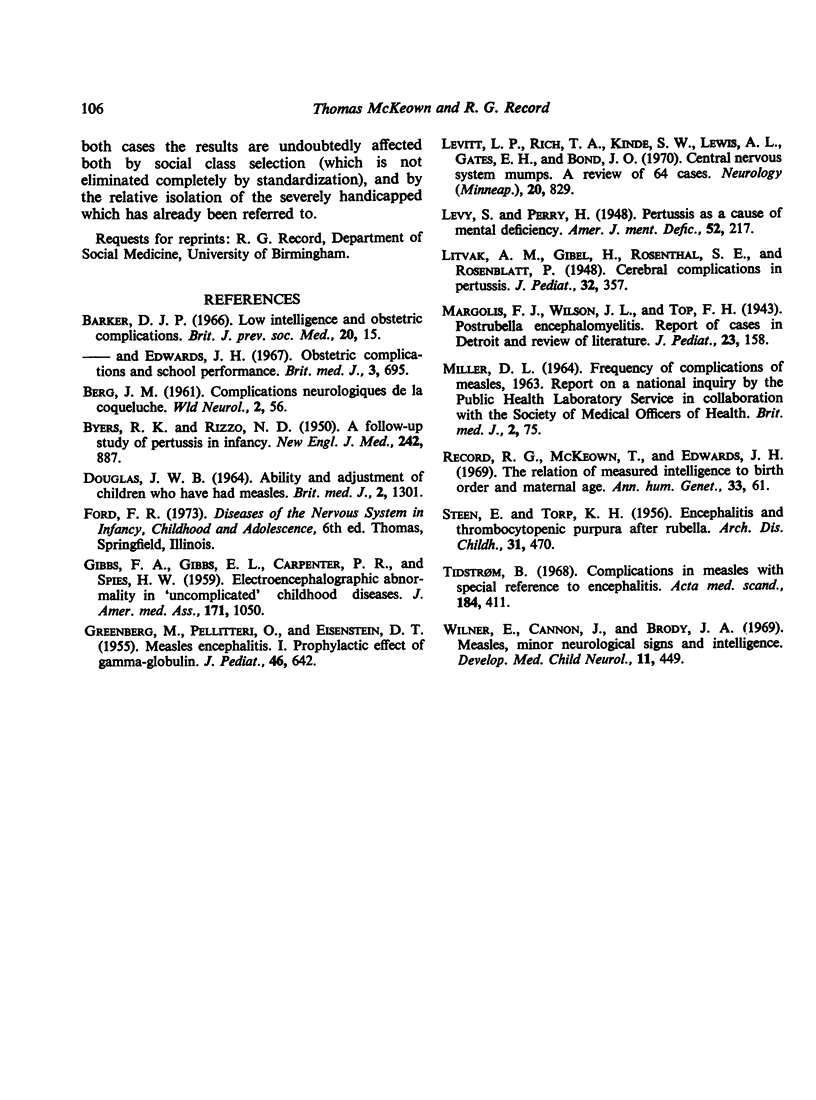
Selected References
These references are in PubMed. This may not be the complete list of references from this article.
- BYERS R. K., RIZZO N. D. A follow-up study of pertussis in infancy. N Engl J Med. 1950 Jun 8;242(23):887–891. doi: 10.1056/NEJM195006082422301. [DOI] [PubMed] [Google Scholar]
- Barker D. J., Edwards J. H. Obstetric complications and school performance. Br Med J. 1967 Sep 16;3(5567):695–699. doi: 10.1136/bmj.3.5567.695. [DOI] [PMC free article] [PubMed] [Google Scholar]
- DOUGLAS J. W. ABILITY AND ADJUSTMENT OF CHILDREN WHO HAVE HAD MEASLES. Br Med J. 1964 Nov 21;2(5420):1301–1303. doi: 10.1136/bmj.2.5420.1301. [DOI] [PMC free article] [PubMed] [Google Scholar]
- GIBBS F. A., GIBBS E. L., CARPENTER P. R., SPIES H. W. Electroencephalographic abnormality in "uncomplicated" childhood diseases. J Am Med Assoc. 1959 Oct 24;171:1050–1055. doi: 10.1001/jama.1959.03010260006002. [DOI] [PubMed] [Google Scholar]
- GREENBERG M., PELLITTERI O., EISENSTEIN D. T. Measles encephalitis. I. Prophylactic effect of gamma globulin. J Pediatr. 1955 Jun;46(6):642–647. doi: 10.1016/s0022-3476(55)80168-0. [DOI] [PubMed] [Google Scholar]
- Levitt L. P., Rich T. A., Kinde S. W., Lewis A. L., Gates E. H., Bond J. O. Central nervous system mumps. A review of 64 cases. Neurology. 1970 Aug;20(8):829–834. doi: 10.1212/wnl.20.8.829. [DOI] [PubMed] [Google Scholar]
- MILLER D. L. FREQUENCY OF COMPLICATIONS OF MEASLES, 1963. REPORT ON A NATIONAL INQUIRY BY THE PUBLIC HEALTH LABORATORY SERVICE IN COLLABORATION WITH THE SOCIETY OF MEDICAL OFFICERS OF HEALTH. Br Med J. 1964 Jul 11;2(5401):75–78. doi: 10.1136/bmj.2.5401.75. [DOI] [PMC free article] [PubMed] [Google Scholar]
- Record R. G., McKeown T., Edwards J. H. The relation of measured intelligence to birth order and maternal age. Ann Hum Genet. 1969 Jul;33(1):61–69. doi: 10.1111/j.1469-1809.1969.tb01630.x. [DOI] [PubMed] [Google Scholar]
- STEEN E., TORP K. H. Encephalitis and thrombocytopenic purpura after rubella. Arch Dis Child. 1956 Dec;31(160):470–473. doi: 10.1136/adc.31.160.470. [DOI] [PMC free article] [PubMed] [Google Scholar]
- Tidstrom B. Complications in measles with special reference to encephalitis. Acta Med Scand. 1968 Nov;184(5):411–415. [PubMed] [Google Scholar]
- Wilner E., Cannon J., Brody J. A. Measles, minor neurological signs and intelligence. Dev Med Child Neurol. 1969 Aug;11(4):449–454. doi: 10.1111/j.1469-8749.1969.tb01463.x. [DOI] [PubMed] [Google Scholar]


